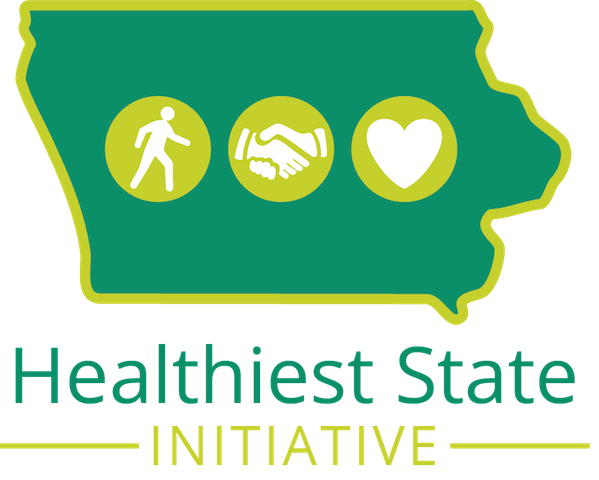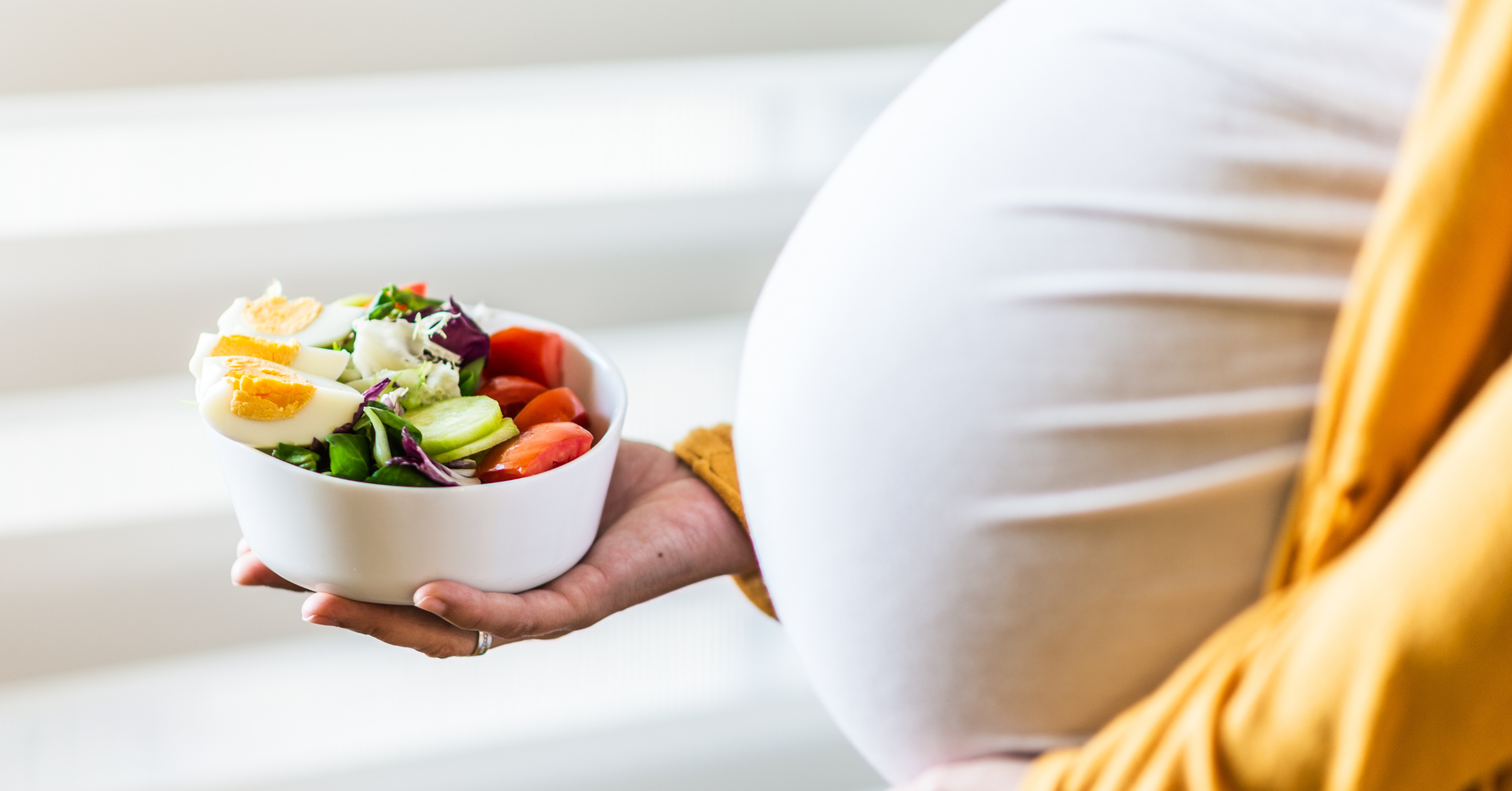Foods that Promote a Healthy Pregnancy
Author: Paige Green, RD, LD Hy-Vee Registered Dietitian
Before ever becoming pregnant, I imagined eating while pregnant as a nice stage of life where you can indulge in all the cravings and enjoy “eating for two.” But nobody can prepare you for how it feels to have morning sickness and food aversions. You may find that nothing sounds good to eat and everything smells incredibly strong! Then something very specific and odd sounds tolerable to eat, and it is a quest to find that exact item at that particular time. Plus don’t forget about following all the extra food safety precautions while also keeping in mind the recommended ranges of weight to gain during pregnancy. Yikes! Even as a dietitian, I found eating during pregnancy extremely challenging. But my best diet advice during pregnancy is to – if possible – do what you can prior to pregnancy to be well-nourished, and then give yourself grace and flexibility with your eating during your pregnancy.
I learned that finding support throughout my pregnancy was key! If you are looking for individual nutrition support during your pregnancy, reach out to a Hy-Vee registered dietitian for help. In the meantime, here are some of my recommendations to promote a balanced diet and, in turn, a healthy pregnancy.
Before pregnancy, if possible, do what you can to be well-nourished. Talk with your health care provider about starting a prenatal supplement prior to pregnancy. Hy-Vee has prenatal multivitamins containing essential nutrients such as folic acid and DHA, an omega-3 fatty acid important to infant development. If possible, prior to pregnancy, talk with your care provider and consider adopting a lifestyle routine that leaves you feeling energized with how you’re eating and moving your body. A Hy-Vee dietitian can help you create a personalized plan!
During pregnancy, remember to – above all – give yourself grace and be flexible with your intake as you navigate morning sickness, food aversions, cravings and exhaustion. Later on in pregnancy, pregnant women require only about an additional 300 calories per day. If possible, aim to make this extra intake nutritionally dense to give yourself and baby all the required nutrients. Here is a list of key nutrients I recommend to support a healthy pregnancy – and which foods are sources of these nutrients.
Folate/Folic Acid
Folate is a B vitamin that helps prevent problems with the brain and spinal cord during development. Folic acid is the synthetic form of folate found in fortified foods and supplements. You can find folate/folic acid in fortified cereals, spinach, beans, asparagus, oranges and peanuts.
Protein
Protein is critical to a baby’s growth and development. Try incorporating sources of protein such as beef, poultry, fish, cheese, milk, yogurt, lentils, beans, nuts and eggs.
Vitamin D
Vitamin D regulates the amount of calcium and phosphate in the body – nutrients which are needed for healthy bones and teeth. Consider adding fortified milk or juice, fatty fish and eggs to your diet. The body also makes its own vitamin D when exposed to sunlight in the summer; just don’t forget to apply sunscreen if you plan on being out in the sun for extended periods of time.
Calcium
Calcium is needed for strong bones and teeth and also supports the circulatory, muscular and nervous systems. Foods that contain calcium include fortified cereal and orange juice, cheese, milk, yogurt, salmon, spinach, broccoli and kale.
Iron
Iron is used to make hemoglobin in red blood cells to carry oxygen to various tissues. A pregnant woman needs twice the amount of iron as a non-pregnant woman because her body needs to make more blood to supply the baby with oxygen. Add iron to your diet via fortified cereal, beef, poultry, spinach, beans, and iron supplements which may be needed later on in pregnancy. Always consult with your care provider prior to starting any supplements.
Iodine
Iodine is a mineral needed for thyroid hormone production; iodine also helps a baby’s nervous system develop. Iodine is commonly found in iodized salt, fish, milk, cheese, yogurt, enriched bread and fortified cereal.
When feeling up to it, enjoy this Salmon BLT recipe which includes key nutrients to help support a healthy pregnancy by incorporating nutrient-dense foods like spinach, salmon and yogurt.
Salmon BLTs
All you need:
4 (¾-inch thick) slices Hy-Vee Bakery bread
3 tbsp Gustare Vita olive oil, divided
3 slices Hy-Vee bacon, halved crosswise
3 tbsp Hy-Vee plain Greek yogurt
1 tbsp finely chopped fresh dill
1 tsp finely chopped green onion
¼ tsp lemon zest
2 (6-oz each) skinless salmon fillets, ½- to ¾-inch thick
Hy-Vee Mediterranean sea salt
Hy-Vee ground black pepper
Spinach leaves for topping
½ Roma tomato, sliced
½ avocado, pitted, peeled and sliced
All you do:
1. Brush both sides of bread with 2 tablespoons of olive oil. Place bread slices in a large nonstick skillet, toast over medium heat, turning occasionally. Remove bread from skillet; set aside.
2. Place bacon in same skillet. Cook over medium heat for 8-10 minutes or until desired doneness, turning occasionally. Drain on paper towels; set aside. Wipe skillet clean with paper towels.
3. Stir together yogurt, dill, green onion and lemon zest in a small bowl. Set aside.
4. Pat salmon dry with paper towels. Lightly sprinkle both sides of salmon with salt and pepper. Heat remaining 1 tablespoon of oil in skillet. Add salmon; cook over medium-high heat for 5 to 9 minutes or until fish flakes easily with a fork (and reaches 145 degrees Fahrenheit), turning once halfway through.
5. Spread yogurt mixture on toasted bread slices. Add spinach leaves, salmon, tomato, bacon and avocado. Top with remaining bread slices.
Recipe source: https://www.hy-vee.com/recipes-ideas/recipes/salmon-blts
Discover how you can work with a Hy-Vee registered dietitian through our nutrition services such as our On-Demand Prenatal Nutrition Tour, Omega-3 Index Screening, and our On-Demand Freezer Meal Prep Workshop. Learn more by visiting https://www.hy-vee.com/healthnew/dietitians.
The information is not intended as medical advice. Please consult a medical professional for individual advice.


